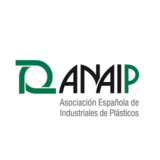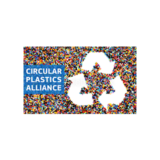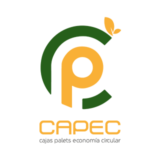
Polycarbonate (PC)
Polycarbonate is an amorphous polymer that belongs to the family of polyesters, which has a unique combination of strength, stiffness, toughness, excellent impact resistance and low crystallinity. PC is also easy to mould, machine and thermoform.
Polycarbonate PC is a type of technical plastic that is composed of carbon and carbonate polymers. Thanks to its unique molecular structure, this material is:
Resistant: withstands high impacts and high temperatures.
Translucent: Along with glass, Polycarbonate PC is one of the most transparent components available.
Lightweight: it is characterised by its low density.
Malleable: Polycarbonate PC is an easy material to process. It can be easily painted, sawed, drilled or bent.
Uses and applications of Polycarbonate
The uses and applications of Polycarbonate are as wide as the properties of this material. It can be found in the following production sectors:
Automotive industry: this component is used for the creation of windscreens, headlights, vehicle interiors, protective panels….
Construction and architecture industry: Polycarbonate is often used for the manufacture of windows, skylights, enclosures, roofing and cladding…
Electronics industry: this material is often used for the manufacture of mobile phone casings, but this is not its only use. Another application of polycarbonate in the electronics industry is the creation of screens for computers, tablets and other electronic devices. This is due to its optical clarity and high strength.
Medical industry: due to its sterilisation capacity and resistance to chemical products, one of the uses of Polycarbonate in the medical industry is the manufacture of equipment such as syringes, catheters, medicine containers, face masks, etc.Optical industry: one of the applications of Polycarbonate is the manufacture of impact resistant lenses, offering protection in industrial and sports environments.
Food industry: this material is used for the manufacture of packaging (bottles, drums, food storage containers…), kitchen utensils (spoons, spatulas, handles…) and food processors (mixers, hoppers, trays, protective covers…).
Storage and handling tips
If we want the Polycarbonate chippings to maintain their characteristics and properties at all times, it will be necessary to store them properly. These storage and handling tips will be useful:
Store in a dry place: polycarbonate PC should be stored in a dry and leak-free area to avoid moisture absorption and therefore the appearance of defects or damage to this material.
Protect from direct sunlight: This component is sensitive to ultraviolet light. Therefore, in addition to storing it in a place away from direct sunlight, we can use opaque containers or containers with covers to prevent the polycarbonate pellets from suffering alterations.
Control the temperature: although it is a highly resistant material, PC polycarbonate should be stored at an ambient temperature of between 20-25ºC.
Avoid contact with chemicals: It is important to store polycarbonate PC pellets away from aggressive chemicals or solvents, as these can cause adverse reactions in the material.
Labelling and inventory rotation: When working with different batches of polycarbonate PC, it is advisable to label them to avoid confusion. In addition, it is important to follow an inventory rotation system in order to use the oldest materials first and to maintain the freshness of the polycarbonate pellets.
What is the service life of polycarbonate pellets?
The service life of Polycarbonate PC is long and can exceed 20 years. This is due to its properties: it is wear, scratch and impact resistant and can withstand high temperatures.
Features
Colors
We have a wide range of colours available. Please consult which of our references best suits your requirements .
Other products
Polypropylene (PP)
Polypropylene is a thermoplastic polymer obtained from the polymerisation ofpropylene, a by-product of petroleum refining. It is divided into three main groups: Polypropylene copolymer, Polypropylene homopolymer and Polypropylene copolymer random. PP is the basic plastic with the lowest density, between 0.895 and 0.92 g/cm3, and is characterised by its mechanical properties, its high resistance to various acids, chemical solvents, and its dual task as a plastic and as a fibre.
Polyethylene terephthalate (PET)
Polyethylene terephthalate, better known as PET, is a linear thermoplastic polymer, belonging to the polyester group, which is obtained from the polycondensation of ethylene glycol and terephthalic acid. It is characterised by its high resistance to wear and corrosion, as well as its high degree of transparency and crystallinity.










